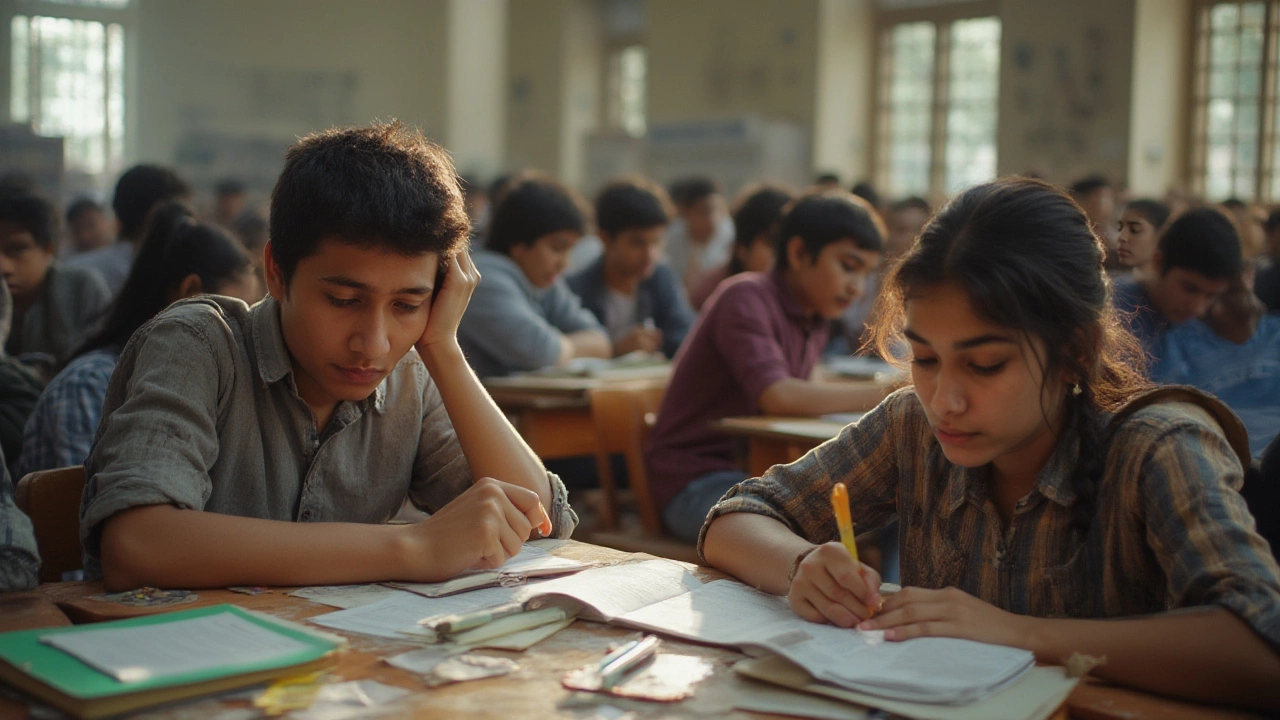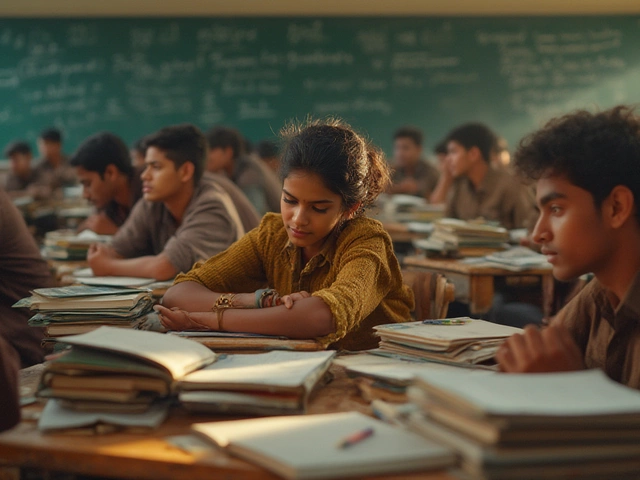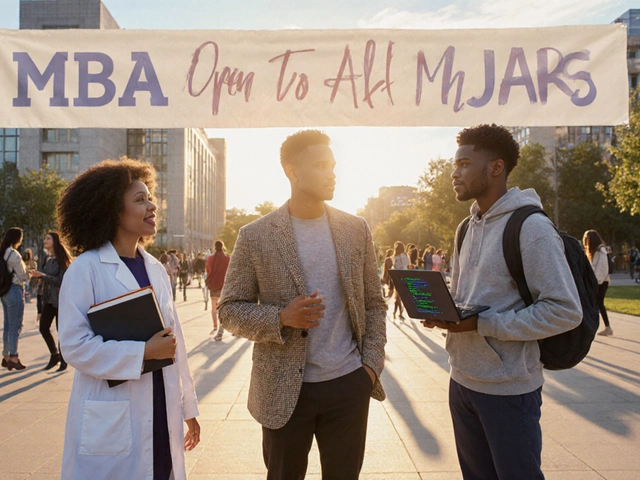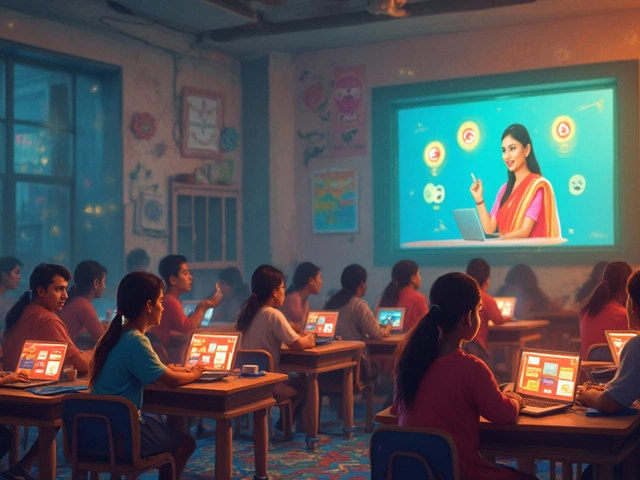Ever heard of a test so brutal it causes headlines, legendary stories, and, yes, a few tears? The idea of the 'hardest exam in the world' hooks everyone—whether you’re sweating over finals or just curious about what people push their brains to do for a dream. But picking just one exam as the ‘hardest’ is like picking the single spiciest dish in a street food market—every country thinks theirs is the ultimate challenge, and honestly, they have a solid case. Let’s peel back the layers and go deep into the actual contenders for the hardest exams, what makes them vicious, and who attempts these monsters.
The Global Titans of Difficulty: Which Exams Have Earned the 'Hardest' Label?
For years, stories have circled the globe about impossible exams that break even the most determined test-takers. What's wild? Every region has a different giant: from India’s IIT-JEE and China’s Gaokao to the US bar exam and medical licensing trials, all make students sweat for months or years. But why do some exams gain a reputation for being so difficult?
Let’s kick off with a few of the big names and what sets them apart:
- Gaokao (China): The Chinese ‘college entrance exam’ is massive—12 hours across two or more days, with near-impossible Math questions and essays that stump even experienced writers. The reality is that scoring well pretty much determines where you’ll live, work, and even your social prospects. Only about 0.2% of test-takers make it into the country’s top universities.
- IIT JEE Advanced (India): Cracking into India’s elite engineering schools is legendary for the volume of competition—about 1.5 million start, less than 2% carve their way through the whirlwind of Physics, Chemistry, and Maths. The questions aren’t just about memorization; they demand out-of-the-box thinking and speed.
- UPSC Civil Services Exam (India): For those aiming to run the government in India, the Union Public Service Commission’s exam is on another level. It’s not just one test, but a multi-stage screening marathon over a year. Less than 0.2% of almost a million candidates make the final cut.
- All Souls Prize Fellowship Exam (Oxford, UK): Want to join the top minds? Prepare for a four-day marathon with utterly open-ended essay questions. In one round, applicants faced: “What is war for?” Tuple that with only one or two actual offers each year.
- USMLE (United States Medical Licensing Examination): Here, knowledge isn’t enough. This multi-step test weeds out anyone not ready for real-world emergency situations and long-term healthcare strategy. Only 56% of international first-time candidates pass Step 1, and medical students study for up to two years just for this hurdle.
Imagine the hours spent, the social lives missed, and the sleep lost. It’s no wonder these exams live rent-free in nightmares and family dinner conversations everywhere. They’re not just knowledge checks—they demand performance under marathon conditions, against a tidal wave of competition.
But let’s not pretend the bureaucracy or sheer volume is everything. The Japanese National Bar Exam (Shiho Shiken) is so notorious for its failure rates (as low as 2–3% before reforms) that entire prep schools exist to get students over the finish line—most candidates attempt it on a second try, or even a third. Japan’s level of exam rigor has spawned its own culture of repeaters, known locally as 'ronin.'
If you’re imagining impossible math, encyclopedic essays, or rapid-fire oral exams, you’re spot on. And it’s not all academic: see the Master Sommelier Diploma Exam—only 8% ever pass, requiring flaw-detecting taste memory most humans will never develop. Or the CFA (Chartered Financial Analyst) exams, which famously eat up to 300 hours of study per level and crush even the brightest finance students with pass rates stuck in the 40% range.
The numbers are jaw-dropping. Take a look at this breakdown of pass rates and test populations:
| Exam Name | Country | Applicants (Approx.) | Pass Rate (%) |
|---|---|---|---|
| Gaokao | China | 10 million | 0.2 (top universities) |
| IIT JEE Advanced | India | 200,000 (final stage) | 2 |
| UPSC | India | 1 million | 0.2 |
| CFA Level 1 | Global | 200,000+ | 40 |
| USMLE Step 1 | USA | 90,000+ | 56 (international first-time) |
| All Souls Prize (Oxford) | UK | Dozens | <5 |
Numbers aside, culture and context set these exams apart, too. In China, nearly every family has skin in the Gaokao game, making it a national spectacle—the buzz hits fever pitch every June. In India, topping the UPSC is life-transforming, earning respect and rock-star status for families who often invest everything into prep. In the US and UK, professional or academic ambitions are tied tightly to the results. There's no hiding from the pressure, regardless of geography.
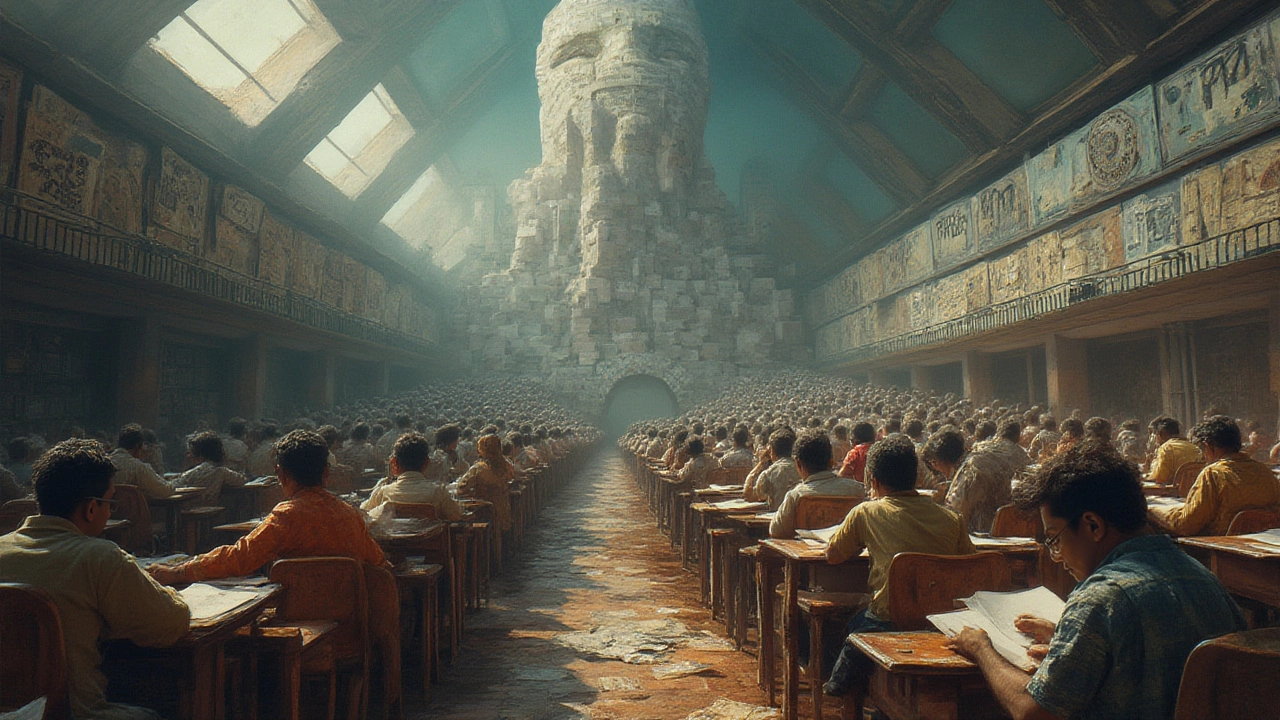
What Makes an Exam So Hard Anyway?
Why do some tests leap out as legendary? It’s more than just the thickness of the textbook or the number of questions. Here’s where things get spicy: exam difficulty boils down to several big factors—and the combination is what makes them so infamous.
- Scope and Depth: Exams like the IIT-JEE or Gaokao demand mastery across high school or even first-year university levels—think calculus, organic chemistry, ancient history, and essay writing all rolled into one.
- Competition: It’s not just about passing—sometimes it’s about outscoring millions of others. A tiny shift in your percentile ranking can mean the difference between your dream school and nowhere special.
- Time Pressure: Some of the hardest exams run up to 12 hours. Others, like the CFA, jam hundreds of analytical problems into six hours—with barely enough time to breathe.
- Multiple Stages: The UPSC or USMLE don’t just end with one test. You pass a preliminary, then face advanced written exams, followed by interviews, or even performance tasks. Drop the ball at any stage, and you start over.
- Unpredictability: The All Souls Exam is famous for abstract, open-ended essay prompts with no 'right' answer—judging originality as much as knowledge.
But let’s talk about the human side here: perfection isn’t just requested, it’s expected. When you’re one of a million, there’s no room for a bad day, a missed question, or even food poisoning. The toughest exams aren’t just knowledge checks—they’re pressure-cookers that test nerve, resilience, and quick recovery.
Preparation tactics have become almost an industry. Dedicated bootcamps, specialized tutors, and even AI-powered apps are just the baseline. In some corners, like Gaokao training towns or IIT-JEE coaching meccas, students live apart from home for years, just to shave precious seconds off calculations or hone their essay skills. It’s not weird for candidates to be at it from dawn until deep in the night. Mental health support? Not always a priority, and burnout is real. Sometimes, failing one of these tests means reworking your entire life plan. Some Gaokao retakers are nearly 30 years old—proof that giving up isn’t always in the vocabulary.
Let’s glance at test formats for a second. High-stakes exams are all over the map, from MCQs (multiple choice) to full-scale essays and simulations. The CFA, for example, includes everything from financial statement analysis to ethical dilemmas. On the USMLE, students diagnose living actors hired to play complex patients. In the UK’s All Souls, you could spend three hours writing about an abstract noun or a historic event, blending wit, evidence, and argumentation without any net.
So what’s the lesson? The hardest exams aren’t just a measure of rote memory; they blend critical thinking, speed, and mental endurance. And the stakes couldn’t be higher—often your social status, family expectations, or even financial future hang in the balance. Perfect test-takers aren’t born—they’re made, usually after years of grinding away with unflagging discipline.
But here’s what no prep course will tell you: emotional stamina is the secret weapon. The winners aren’t always the geniuses—they’re the ones who cope with failure, adapt, and don’t crumble under pressure.

Surviving and Thriving: Tips from Real Test-Takers and Experts
Is there any sane way to prep for a test that chews up prodigies and spits them out? Absolutely—even if it does mean months of caffeine and emotional rollercoasters. Real survivors of these exams have battle-tested tricks that won’t show up in your average study guide.
- Start Early, Not Harder: Long-term planning beats cramming—especially for Gaokao or IIT-JEE. Survivors swear by building knowledge like bricks over years, not days before the exam. Swapping out a mad last-minute rush for weekly discipline (even short study bursts) preserves your sanity.
- Active Practice Wins: Don’t just read, test yourself constantly. Research out of Oxford showed that practice-testing boosts retention by up to 50% more than re-reading chapters. Mock exams under timed conditions—no exceptions.
- Stay Healthy: Sounds obvious, right? The reality is that skipping exercise and surviving on junk food is still the top mistake. A study published in British Medical Journal in 2021 confirmed cognitive scores drop by over 10% with just a week of bad sleep.
- Don’t Ignore Mental Health: Competitive exams trigger real anxiety. Talking to counselors or using mindfulness apps isn’t a luxury—it’s how top scorers manage the rollercoaster. Gaokao training centers in China now have stress counselors on call, and the number using them tripled since 2020.
- Group Study—But Smartly: Team up for tough subjects, but limit study circles to small, focused sessions. Challenger teams for CFA in London found smaller groups (three or less) finished 40% more curriculum before exam day.
- Know the Exam Inside Out: Learn not just the syllabus, but previous trends, question tricks, and examiner expectations. USMLE passers recommend digging through practice materials and speaking to recent test-takers for tips that move the needle.
- Practice Complete Papers—Not Just Questions: Working under timed, high-pressure simulated exams trains your brain for actual day conditions. Multiple Gaokao and UPSC toppers cite this as their unskippable routine.
And what about the dreaded exam day meltdowns? Test veterans have hacks there, too. From training yourself to read and re-read directions (average loss to misreading: four marks per paper!) to simple breathing exercises that reduce cortisol spikes, these strategies save more than just points.
Parents and friends play a bigger role than you’d think, too. Research from Delhi University in 2023 found that students who had supportive check-ins (not nagging, but actual supportive conversations) performed 15% better on average on their final attempt. That’s a bigger boost than expensive coaching.
The key takeaway? It’s never just about IQ. Conquering the world’s hardest exams is about grit, smart prep, mental flexibility, and support systems. These marathon tests might seem unbeatable—but thousands do crack them each year, proving it's madness, but not magic. If you’re staring down your own behemoth exam, remember—fear is temporary, that result lasts much, much longer.
